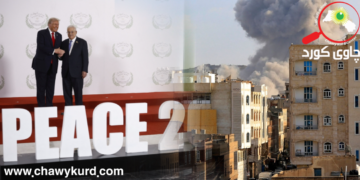Since October 7, 2023, when the war between Hamas and Israel broke out, the Hamas movement has faced many challenges and pressure at the international level. Hamas’ main base outside Palestine is in Doha, Qatar. Qatar took a great role in meditating between The United States and Taliban. He signed an agreement in the presence of representatives of more than 30 countries in Doha, Qatar.
Hamas’s headquarters in Qatar, Qatar’s experience in mediating between the Taliban and Afghanistan on the one hand and the Taliban and the United States on the other, and Qatar’s desire to present itself as an Arab force capable of resolving regional problems between Hamas and Israel, which has so far succeeded in bringing about a temporary ceasefire. But by describing Hamas as a terrorist group before and after the events of October, Qatar is trying to ease the burden on Hamas, because it will marginalize Qatar by the international community and it is true that Qatar has not had direct political relations with Israel. But the two countries were in touch in terms of trade and diplomacy. Qatar has come under pressure, prompting Hamas leaders to look for alternatives. Earlier, Hamas tried to open a representative office in Turkey, but despite Erdogan’s fiery speeches in support of Hamas and the Palestinian people, Turkey does not want to get into trouble and refused to open an office in Istanbul or Ankara. Turkey has intelligence with Tel Aviv.
There are rumors that Hamas bases and headquarters will be moved to Iraq. Iran supports the move and Iraqi militias, especially Hezbollah, although Fadi Shammari, political adviser to the Iraqi prime minister, told the newspaper Al-Sharq al-Awsat that there is no official Hamas headquarters in Iraq as claimed. They have also not received any requests to transfer Hamas leaders or open an official office in Iraq. Meanwhile, The National news website reported that Hamas leader Ismail Haniyeh met with representatives of the Iraqi and Iranian governments last month to discuss the issue, saying the Iraqi government had agreed to transfer Hamas leaders to Baghdad and Iran had shown its responsibility to protect them.
Moving headquarters to Iraq could put Hamas at greater risk. This includes adversaries such as Israel and the United States, as well as conflicts with other groups in the region. While its presence in Iraq could have strategic benefits such as closer ties with allies such as Iran and easier access to resources. At the same time, it could expose Hamas to major military and political risks, including rising opposition from its opponents and international sanctions. The Hamas leadership is also exposed to extreme risks so it needs constant protection against internal rivalries, intelligence operations, and potential infiltration attempts by rival factions or security agencies.
Hamas cannot rely on Iran forever. Although Iran has historically continued to support Hamas, Tehran has its own strategic priorities and threats to consider. The Iranian regime is under significant pressure from international sanctions and domestic unrest, so it is unlikely to limit its support for Hamas.





























































